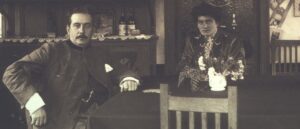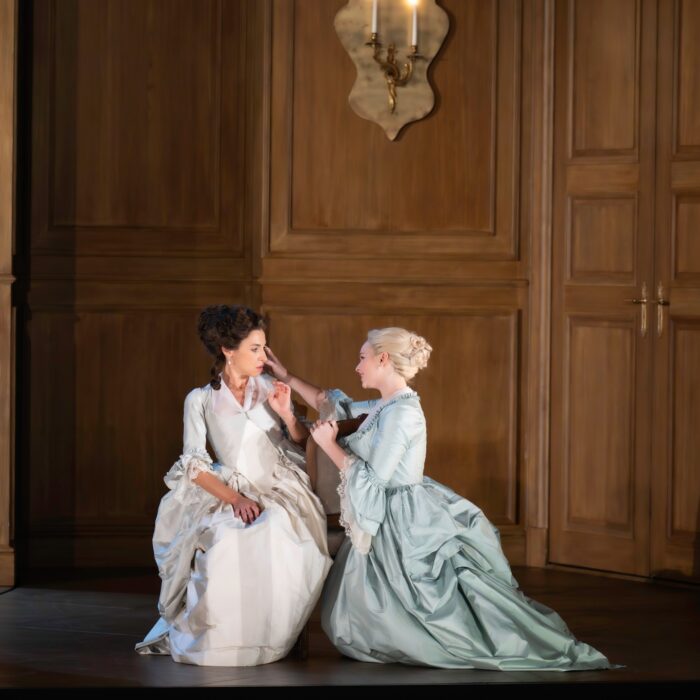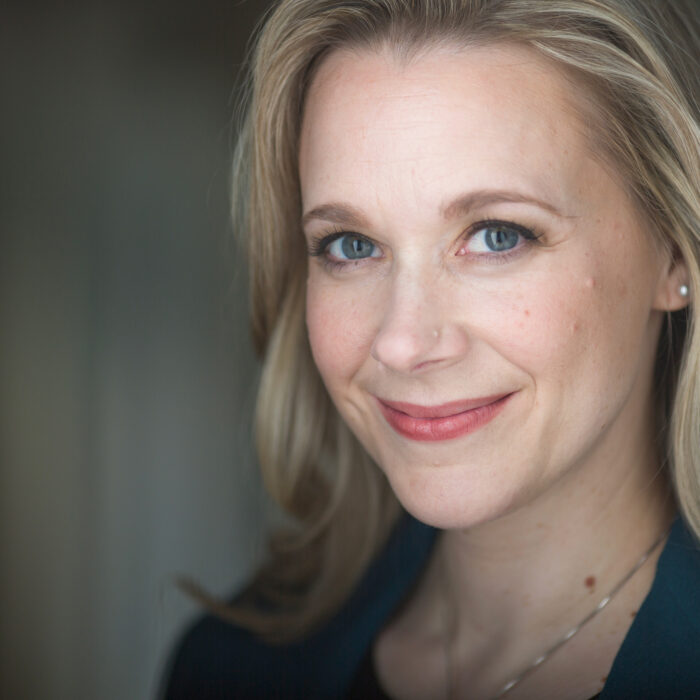
He Did What?! Puccini & His ‘Love’ Life
By John VandevertWhat can be said about opera composers? Those who compose opera usually live very operatic lives filled with tons of drama fit for the stage. This is no more apparent than the great verismo composer Giacomo Puccini (1858-1924) who, in his relatively short life, had many affairs, a formal wife, a “legitimate” and “illegitimate” son, and yet still found the time to compose operas, art songs, piano works, and masses!
In this Valentine’s Day post, we’ll recount the many escapades of Puccini’s secret (now public) “love” life.
Puccini’s Wife
Puccini’s wife was Elvira Bonturi Gemignani (then Puccini). Although married at the time to a school friend, Narciso Gemignani, when Puccini met her in 1884 it was the start of a very intense romance. At first, he was teaching her piano lessons but by 1886, the relationship had taken a much more sensual turn. Of course, Narciso soon found out and was furious at the adultery of his wife and the womanizing of his friend but this didn’t stop the romance from growing. Despite the deception, Elvira soon became pregnant and in order to evade gossip left Lucca to give birth to their son Antonio (1886–1946). Although the relationship has far too many details to summarize, in general Puccini’s infidelity was thought to be a sign of Elvira’s failed duties as a woman and this would bring her a lifetime of anxiety and stress.
To add to this, they both married on January 3, 1904 even though Elvira knew her husband’s activities. Elvira was known as a hot-headed, aggressive, courageous, and jealous woman who reacted abrasively towards women. But who wouldn’t in this state? She was taken to court over the suicide of Doria Manfredi (an innocent victim of Puccini’s lust), although never serving time for her role. Puccini and Elvira stayed together until Puccini’s death in 1924.
The Maid’s Cousin
Another, much more miserable, chapter of Puccini’s love life was the relationship between Puccini and Giulia Manfredi whose maid, Doria, paid with her life. Giulia was Doria’s cousin and a tavern worker near Torre del Lago where Puccini had a home and land. She was considered to be forthright, confident, and independent in thought, so it’s not hard to see why Puccini must have fallen in love with her.
This relationship would birth Puccini’s “illegitimate” son, Alfredo, in 1923, although the composer did have a one year relationship with the son before his death. As a result of this relationship, Doria would kill herself as she was being shamed by Elvira for being a harlot despite medical records noting that she died a virgin. The granddaughter of Alfredo, Nadia Manfredi, was the first person to shed light on the relationship.
Giacomo’s Cut Off Love
Named “Corinna,” Puccini had fallen in love with a schoolteacher from Turin despite being twenty years younger than the composer. Like others, Puccini had bought a home for her near Torre del Lago and used her as the inspiration for his opera Madame Butterfly. However, the relationship would turn sour in 1904 when, following the death of Corinna’s husband, private detectives would uncover that Corinna was sleeping around with other men.
This infuriated Puccini, ironically considering he was doing the same thing at the time, and after sending her a final furious message the relationship was stopped. He would go on to pay her off to make sure she disappeared from the scene all together.
His Many Lovers
How can Puccini’s many love affairs with sopranos, married women, and well-to-do elites be summarized? Marrying his work with play, Puccini’s lovers were conveniently the ones who would go onto secure the legacy of Puccini the composer for centuries to come:
Married to David Seligman, prominent banker at the time, Sybil’s relationship with Puccini is the least documented one of them all. Although Puccini argued that he had an intellectual relationship with the woman, who traveled and knew many languages, there is reason to speculate. Records of this relation are scarce and far between, and pictures are unavailable in any capacity.
Nicknamed the “Moravian Thunderbolt,” dramatic soprano Maria Jeritza rose to fame during the 20th century for her superior vocal technique and stunning beauty. Maria’s work with Puccini is extensive and long, but some of the most well known collaborations was her starring in the title role of Turandot in the opera’s North American premiere in 1926 as well as her work in Tosca. In a 1958 interview she is recorded as stating, “I was Puccini’s creation in Tosca.”
Czech dramatic soprano Emmy Destinn is regarded as a power of the Old World of opera. However, her work with Puccini is remembered because she created the role of Minni in La Fanciulla del West in a famed production directed by conductor Arturo Toscanini. The relationship between Emmy and Puccini is really only speculation.
Italian soprano Cesira Ferrani is an internationally celebrated name which is most commonly attributed with two operas, Puccini’s La Boheme and Manon Lescaut. Having made her debut in 1887 in Bizet’s Carmen, Ferrani took the operatic world by storm when she created the role of Mimi in the original 1896 production of La Boheme at the Teatro Regio di Torino. Cesira and Puccini’s relationship is only immortalized in a signed photograph following a very successful premiere. In 1928, her voice could be heard on the first recording of Madame Butterfly.
Romanian dramatic soprano Hariclea Darclee may be one of the women who had the longest careers of anyone on this list. Spanning from the 1880s to the 1920s, Darclee became well known for her interpretations of French operatic characters such as Marguerite in Gounod’s Faust and Juliette in Roméo et Juliette. She later moved into verismo and bel canto, and created the role of Tosca in Puccini’s 1900 opera. Puccini praised her for her version of Manon as well.
Although little is known about the Austrian soprano, Rose Ader was the creator of the role of Liu in Puccini’s unfinished opera Turandot. Their relationship is one that has been recorded officially, in several letters Puccini noted his sadness for having met her too late in his life.
Perhaps the most obscure one, German baroness Josephine von Stengel, was an object in Puccini’s eye. He had bought land near Torre del Lago for her but the relationship never really took off. She died two years after Puccini.


